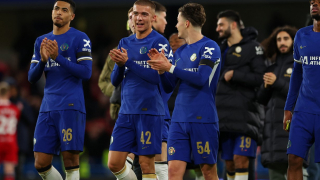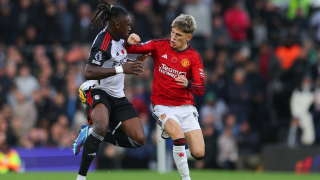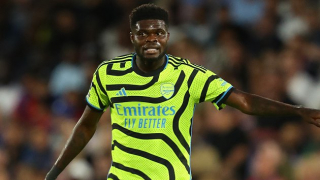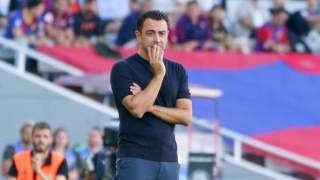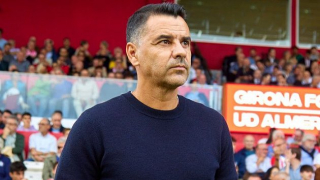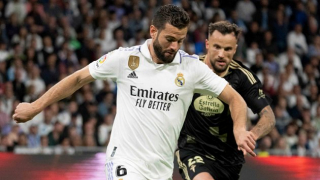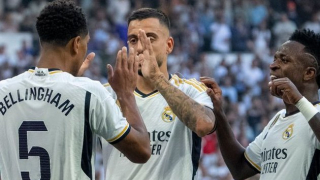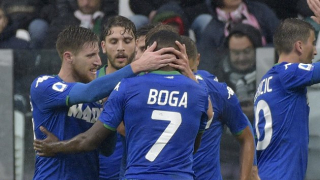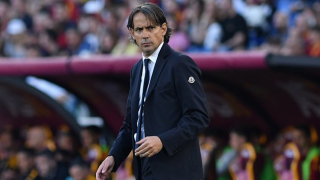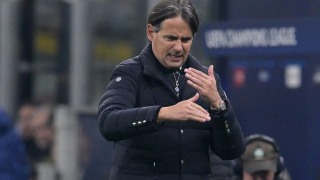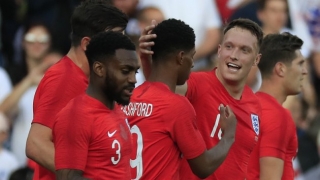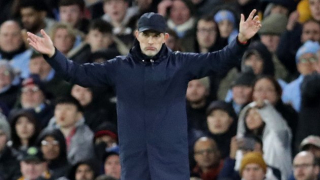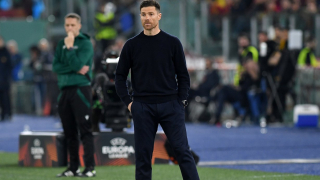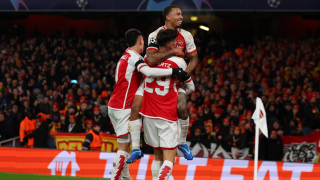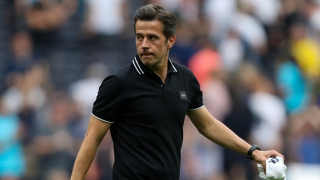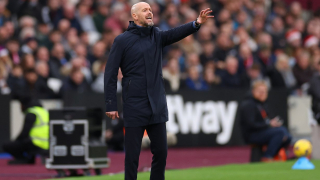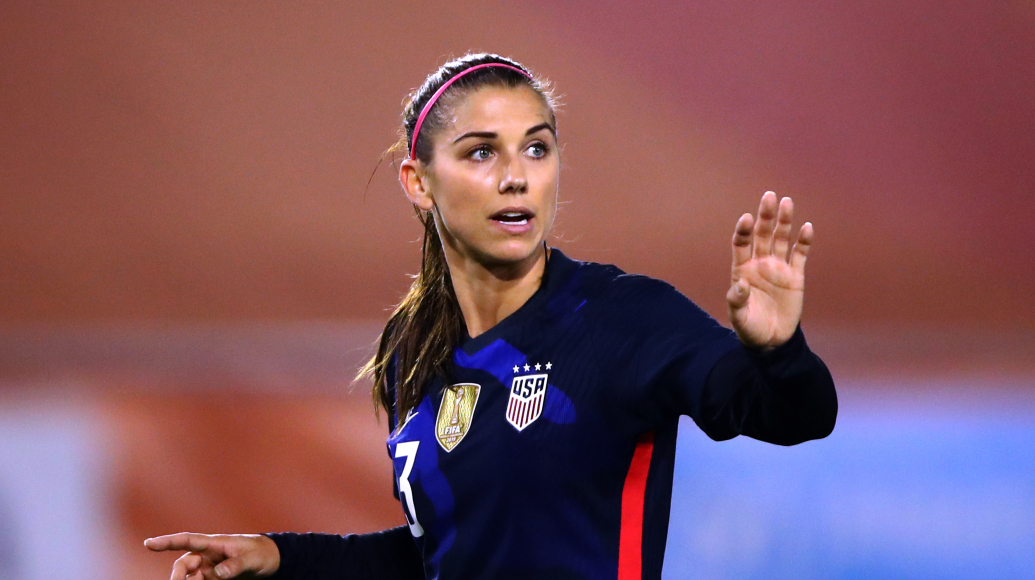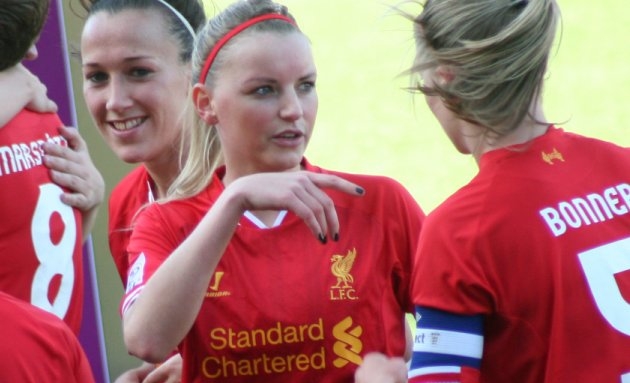This week we review this month's Olympic Games Finals Women's Football Tournament in Japan, won by Canada on penalty kicks over Sweden; the 16 day competition delivered some great individual and team performances, including three of the four quarterfinals games requiring extra time to decide a winner, with two of those going to penalty kicks.
Oh Canada! Third Consecutive Olympic Medal—a Gold Medal--includes a First Win over their Neighbors to the South—the U.S.—in Two Decades
On August 6, Canada won the Olympic Gold Medal on penalties after a 1-1 tie against favored Sweden, who were outstanding all tournament. Chelsea's Jessie Fleming (67') scored on a penalty kick for the second consecutive match after Sweden's Stina Blackstenius (34') opened the scoring during regulation play. At the end of an exhausting and short tournament (see more below) both teams saw 7 of 12 penalty attempts miss or were saved; Nathalie Bjorn (Everton of the WSL) and Olivia Schough (Rosengard of Sweden) scored for Sweden while Chelsea's Jess Fleming (again), Deanne Rose (ex-University of Florida and—despite being the 10th pick in the NWSL 2021 draft—signed on July 28 to play this season for Reading in the WSL on a two year contract) and Julia Grosso (University of Texas) scored for the Canadians. Grosso's kick was touched with one hand by a diving Swedish keeper Hedvig Lindahl (currently with Atletico Madrid in Spain after one year with Wolfsburg in Germany and four with Chelsea) but ricocheted up high into the net. Sweden's veteran midfielder Caroline Seger of Rosengard could have won the game and the Gold Medal for her country, but she put her spot kick acres over the goal that was defended by her club teammate Steph Labbe.
Canada Women's National Football Team displays their Gold Medals after their victory over Sweden on August 6. Photo courtesy of Canada Soccer.
Canada defeated the U.S. in a 2020 Olympic Games semifinal match on August 2, 2021 (1-0) for only their fourth win in 62 games all-time between the two neighboring countries in order to make the Gold Medal match against Sweden. Canada is now 4-7-51 (W-D-L) against the Americans dating back to 1986 and was its first win in the series since March of 2001 in the friendly Algarve Cup spring tournament in Portugal.
Canada played a strong defensive game and completely befuddled the U.S., who had 17 shots—but rarely threatened to score—while Canada had only 5 (6 vs. 2 for shots on frame). The crucial moment came in the 75th minute when American back Tierna Davidson (Chicago Red Stars) was adjudged by VAR review to have taken down Deanne Rose in the penalty area after Ukrainian referee Kateryna Monzul had initially let play continue.
All-time men's and women's leader in international goals Christine Sinclair (187 goals from 304 caps) usually takes the penalty kicks for Canada but had missed her first attempt against Brazil in the penalty kick decider in their quarterfinal match and turned the ball over to Chelsea midfielder Jess Fleming, who beat substitute goalkeeper Adrianna Franch (Portland Thorns)—who replaced starter Alyssa Naehler (Chicago Red Stars), who injured her leg after the first half hour. France dived to her left but Fleming's shot was perfectly placed into the side netting. Sinclair did not mention it after the game but part of her rationale was probably that she would be facing long-time Portland Thorns clubmate Adrianna Franch in goal, who likely has seen every version of Sinclair's attempts in practice [She did the same thing in the Final match against Sweden after being fouled in the box, with Fleming again burying her spot kick]. She showed again how great a captain she is in deferring to her teammate in Fleming for such a huge kick, explaining after the game that "[Jess] was always so calm." Sinclair said about the historic win minutes after the match on NBC television, "It's been a long time coming to finally beat these guys in a tournament that matters, I'm so proud of these guys." [I think over the years of just the tournaments that I have covered live in which Canada fell narrowly to the U.S., including the Bronze Medal match of the 2003 Women's World Cup in Los Angeles, the 2008 CONCACAF Olympic Qualification Tournament in Juarez, Mexico and last year's 2020 CONCACAF Olympic Qualification Tournament in Los Angeles, as well as other big matches between the two sides over the years, including the FIFA U-19 [now U-20] Women's World Cup Final in 2002 in Canada, the 2008 Olympic Games Quarterfinal in China and the 2012 Olympic Games Semifinal in London. This win was bound to happen at some point and it finally did on a huge stage in a vital match.] Sinclair called the performance of her side "Gritty…. Our goal heading here was to change the colour of the medal after back-to-back Bronze Medals. What a performance, what a fight, I'm just so proud of our team, and one more to go. For those of us who were part of 2012, it was nice to get a little revenge in an Olympic semi-finals [a 4-3 loss to the Americans in extra-time in London]. This is a very unique and special group, one I'm very proud to be part of; we fight for everything. Job one is done for us, changing the colour of the medal, but now that we're in the Final, we go for it. This tournament is grueling, that's why I'm proud that we have 22 players strong that can step on the field and make a difference and they have this tournament."
Head Coach Bev Priestman, who has been in the lead coaching position in Canada job all of 10 months after helping England to the 2019 Women's World Cup semifinals in a two year stint with her native country's women's national team program, said after the match, "All credit to the players, they left everything out there. It meant so much to them to get to this Final. I think you saw that in the shift that they've put in. There's some veterans on this team that still feel that hurt from London 2012. I'm over the moon for that group of players to get that, and someone like Christine [Sinclair] now gets to go to an Olympic Final; they've done so much for the program. For us, we were clear; we wanted to change the colour of the medal. Winners win and we're going into that final to get a Gold Medal."
Note: Former Canada WNT head coach John Herdman, who brought Priestman from New Zealand a few years after taking the job in Canada in the fall of 2011, following taking the Football Ferns to two WWCs in China and Germany, has had a good 2021 Gold Cup tournament recently with the Canadian men's national team (which he switched to in January of 2018). The Maple Leafs lost narrowly to CONCACAF giant Mexico in the semifinals 2-1 and had considerably better of the play for large parts of their match on July 29. Canada's men's team now enters the final phase of CONCACAF 2022 World Cup qualifying this fall with a legitimate shot at a World Cup Finals spot in Qatar, for the first time since the CONCACAF qualifying tournaments of the 1990's, which, if they qualify, would be only their second ever World Cup Finals appearance since their debut in 1986 in Mexico.
The USA's best chance of the Canada game came on a Carli Lloyd (NJ/NY FC Gotham) header that slid just past the top of the crossbar in the 86th minute, though it was well covered by Canada goalkeeper Steph Labbe (Rosengard of Sweden). Labbe was the hero of Canada's shootout win over Brazil in the quarterfinals (see below) finishing the 120 minutes with six saves.
The North American semifinal game was held in Kashima, about a 90 minute train ride east from central Tokyo station and home to the Kashima Antlers, where Brazilian super-star Zico played and coached in the 1990's, when the professional J-League began. Unfortunately, no fans were allowed at the match because of COVID.
I covered women's football for two Canadian outlets for years and still participate in media calls with the federation. I knew at some point that the Canadians would best the Americans in a game that mattered, after coming so close on so many occasions. Canada has for years done so many things correctly in developing their women's game, particularly in growing the sport at the youth level for boys and girls, which overtook ice hockey in the number of youth players in the country years ago. They have the nucleus of a new wonder generation of players emerging including Fleming, Jordan Huitema of PSG and defender Vanessa Gilles (ex-University of Cincinnati who has played for Bordeaux in France since 2018, after moving to Europe to play the first half of 2018 with Apollon Limassol in Cyprus), who was all-world against the Americans with 19 clearances—45% of her side's 42 clearances and she alone had six more clearances than the entire American team with 13, and could be moving to a higher profile club in England or Spain in the next year or two—along with Janine Beckie of Manchester City up front. Combine this with a strong youth national team program (finishing fourth at the FIFA U-17 WWC in Uruguay in 2018) and Canada is in very good shape. The next step for future growth is to start a national professional league (which we have talked about recently; see last week's column: The Week in Women's Football: Ex-Arsenal coach joins Reign; Matheson retires; Iceland update - Tribal Football) so that they are not so reliant on the American's NWSL, though the relationship between the two nations has been very beneficial to both nations. Congratulations to the Maple Leafs on their Olympic Gold Medal and landmark victory over the Americans.
Canada celebrates at the 2020 Tokyo Olympics, where they won the Gold Medal. Photo courtesy of Canada Soccer.
Canada had advanced to the quarterfinals with only four goals scored, tied with Great Britain and Australia for seventh best of the 12 competitors, but only allowed three goals—tied for fourth best with Brazil, who they knocked out of the quarterfinals after a scoreless tie by winning the penalty kick decider 4-3. Great Britain only allowed one goal in their three matches for the best team defense in the group stage, followed by Japan and Sweden with two. Janine Beckie scored twice for Canada in the 2-1 win over Chile, of which Head Coach Bev Priestman said, "You had Olympic debuts for Jayde Riviere (University of Michigan) and Julia Grosso (University of Texas)—both 20-years-old—who came through the youth system, and I was really proud of both of those performances." Evergreen forward Christine Sinclair scored in the 1-1 opener against Japan; and Adriana Leon (West Ham United) scored in the last group game, a 1-1 tie against Great Britain.
In the quarterfinal against Brazil, goalkeeper Labbe was the hero with two saves in the penalty kick session—one from Andressa with AS Roma of Italy and the other from Rafaelle, who recently joined Palmeiras in Sao Paulo after five years in China with Changchun Dazhong Zhuoyue, after playing at the University of Mississippi and one season with the Houston Dash in 2014—in the fourth and fifth rounds of the shootout, to give Canada a semifinal spot at their third consecutive Olympic Games. Sinclair had her opening spot-kick denied by Brazilian goalkeeper Barbara (Kindermann in Brazil) but Fleming, Ashley Lawrence (Paris St. Germain), Leon (West Ham United) and Gilles all made consecutive penalty kicks to earn the 4-3 shootout victory. Canada's defense effectively won the match as during the 120 minutes of field play, they had one shot on target, while Brazil had four (of 9 total shots).
Note: In Brazil's 5-0 win over China, 35-year-old Marta (Orlando Pride), scored twice while becoming the first player to score in five women's Olympic soccer tournaments, while her teammate Formiga (Sao Paolo FC, after playing with Paris St. Germain for five seasons and played in the States in the W-League and WPS) became the first women's footballer to play in seven Olympics. The 43-year-old Formiga played in the inaugural women's Olympic soccer competition in 1996 and each tournament since.
American Introspection—What Went Wrong and What Will Change?
The U.S. was shutout in three of their first five Olympic Final matches and won only once in regulation prior to their Third Place match (not including the QF win over the Netherlands on penalty kicks)—it had been shutout just twice in its first 32 Olympic Finals games and allowed seven goals, the most it has ever allowed in an Olympic tournament. Head Coach Vlatko Andonovski's position was unfortunately looking shaky (it shouldn't be the case but previous WNT coaches have been let go after only one or two losses—Greg Ryan, after a devastating 4-0 loss to Brazil in the 2007 semifinals in China combined with Hope Solo's meltdown because he used backup Brianna Scurry in that crucial match, and Tom Sermanni after losing two games at the Spring Algarve Cup while giving young players a chance, as he was directed to do by Federation management..
The pressure on Vlatko was released with their Third Place match 4-3 victory over Australia to capture a Bronze Medal (see more below). Returning home without a medal probably would have driven a head coaching change. Andonovski is now 24-3-2 (W-D-L) in his first 29 games in charge.
One of the pictures of the tournament—immediately following the match, Carli Lloyd ponders the U.S.'s surprise loss to Canada 1-0 in the 2020 Olympic Games Semifinal on August 2, 2021. Photo Source: NJ.com.
Many think that the U.S. team was too old (at an average age of 32) with Carli Lloyd (39) and Megan Rapinoe (34) not playing to previous expectations, as well as Alex Morgan (32). This certainly looks like the last tournament for Lloyd—who scored twice in the Third Place game and finished as the U.S.'s all-time Olympic Goals scorer with 10 goals in 312 caps—second on the U.S. team ahead of now retired Christie Rampone (311) and now only behind Kristine Lilly with 354 appearances all-time The midfield in particular at times looked overrun—particularly against Sweden in the opener—with Lindsey Horan (Portland Thorns), Sam Mewis (North Carolina Courage) and Julie Ertz (returning from injury suffered earlier this NWSL season with the Chicago Red Stars) not dictating play as usual. Others that may have played in their last major tournament include central defender Becky Sauerbrunn (36) and wing back Kelly O'Hara (33). If Alex Morgan returns—as expected—the forwards need to get younger as the Japan squad's youngest forward was Lynn Williams (North Carolina Courage) at 28, who has never been seen as a consistent starter for the Nats despite strong NWSL seasons with the Courage. Andonovski had to deal with a clear lack of chemistry on his side (which COVID restrictions could have impacted but every team had to deal with them—see more below), little coherency as well as questionable line-up decisions and tactics. There is young talent waiting in the wings, particularly in the NWSL, but also a few abroad like Catarina Macario of Lyon, who was on the side in Japan but only played for 6 minutes in the 6-1 dismantling of New Zealand in the Group Stage.
Three European Sides perform well but Only One Made the Semifinals
Sweden, under their stellar head coach Peter Gerhardsson (61), who coached for years on the men's side before taking over the women's national team in 2017—with eight seasons at BK Hacken's men's side in Goteborg—created an early stir on match day one when they thoroughly defeated the reigning Women's World Cup Champions Americans 3-0, in a game that could have been worse for the U.S.. The Swedes then defeated Australia (4-2) and New Zealand (2-0) to top Group G and was the only side with three Group round victories. Great Britain and the Netherlands also topped their groups (E and F, respectively) with 7 points, each with one tie (1-1 with Canada and 3-3 against Brazil, respectively).
In the Quarterfinals, only Sweden advanced after a 3-1 win over Japan—the only one of the four matches to be decided in regulation time, while Great Britain fell to Australia 4-3 in extra time and Netherlands lost to the Americans 4-2 on penalty kicks after a 2-2 tie through 120 minutes. For Great Britain, Ellen White was sensational in scoring all but one of their 7 goals (the other being a Canadian own goal), including a hat trick in the QF lost to Australia. Vivianne Mediema of the Netherlands scored 8 of her side's tournament-leading 21 goals in the group stage and then added two more against the Americans to finish as the Golden Boot winner with 10.
The Americans were viewed as somewhat lucky to knock the Netherlands out but the game could have gone either way before penalty kicks, with Lieke Martins having her penalty kick attempt saved by veteran goalkeeper Alyssa Naeher (Chicago Red Stars) late in the second half (81st minute). Midfielder Danielle van de Donk (who joined Olympique Lyon of France this summer after a long spell in the WSL with Arsenal) sent a close-range header just wide in the 86th minute and Megan Rapinoe's (OL Reign) cross caused havoc in the Dutch defence in the 89th minute. The Netherlands had a header goal disallowed for offside in the 94th minute and Naeher made a diving save on Miedema's header in the 103rd minute. The U.S. had two disallowed goals in the final 15 minutes of overtime by Christen Press (ex-Manchester City and currently without a club) and Alex Morgan (Orlando Pride).
The Americans scored four consecutive spot kicks after the 120 minutes through Rose Lavelle (OL Reign), Morgan, Press and Rapinoe, while Naehler saved two in the penalty shootout, including one from the first shooter Miedema and the Netherlands' last shooter Aniek Nowen (Chelsea in the Super League). The result was a sad way for head coach Sarina Weigman—a former international player for the Netherlands—to leave the side she guided to the 2017 EUROs title and the 2019 WWC final. She will now coach England's women's national team.
COVID changed the Atmosphere of the Games
Megan Rapinoe talked about the lack of atmosphere at these Olympics—with COVID restricting attendance to minimal numbers outside of Tokyo and games completely closed to fans within Tokyo—being staged in a country where the vast majority of residents were against them coming because of the low number of residents having been vaccinated during the pandemic. Remember that the first women's football matches in the Olympics were at the 1996 Games in Atlanta, Georgia, which helped create the platform for the hugely successful 1999 Women's World Cup in the States, which shot the American women to national prominence with exciting performances and sell-out crowds around the country. Rapinoe said, "There's quite literally no fanfare. There's signage, and you got the lanyard, and you have all the things to make it feel like an Olympics….[It] is completely different…I think now that's everything's kicking off, we'll be able to watch more events on TV, you'll get all the little back stories, and from that perspective, it'll feel more like it. But to play a major championship in a stadium with, there's probably like 100 people here total; obviously it's really different." The U.S. stayed in a hotel in central Tokyo and received daily COVID tests, and Rapinoe continued, "Obviously you're in the middle of Tokyo, and there's not really a green space, or anywhere that you can go. So that's a little tougher. I think the work-life balance is probably a little off or completely off at this time." Rapinoe also admitted that, against Sweden in their opening match, that the U.S., "got our asses kicked," but again brought up the lack of fans, "Probably the atmosphere sucked a little bit out of us." To be fair, the other teams and other sport disciplines had to deal with the same thing. Japan was a wonderful co-host of the 2002 Men's World Cup which I attended and it was sad to watch all the empty stadiums on TV, but the health risk was too great to not take these extreme precautions.
Zambia and Barbra Banda Were Revelations
We regularly cover the African women's game so Barbra Banda was a known entity to regular readers of this column, but many viewers were taken by surprise with her scoring talent. She scored three goals in each of Zambia's first two matches (a 10-3 defeat to the Netherlands followed by a 4-4 tied with China) to lead the Copper Queens. A narrow 1-0 loss to Brazil, when they played with 10 women from the 13th minute on after Lushomo Mweemba (20) of Green Buffalos received a straight red card, sent them home but there is so much to build on. The Zambian Federation must continue to invest in the women's league, the youth level and the full national team, staging friendlies at home and abroad.
Zambia's performance in Japan was even more amazing given that the Copper Queens struggled to raise the funds ($2 million budget) to prepare for the games and actually compete in Japan, but a late fundraising campaign at home was successful. Access Bank and United Bank for Africa pledged US$10,000 and US$5,000 respectively while Bank of Zambia donated K100,000 (US$5,200) with a similar amount pledged by staff from the Vice President's office, while NATSAVE (Zambian Government Financial Institution] gave K60,000 along with K60,000 (US$3,100) from selected permanent secretaries, K50,000 (US$2,600) from the Zambia National Building Society and K2,000 ($104) pledged by the City of Lusaka players That's great that the players are helping the National Team but they shouldn't have to as these players and clubs are struggling for salaries and resources at home as it is.
Zambia (ranked 104th in the last FIFA women's national team ratings) shocked many at the end of last year when they defeated Cameroon (the 12th ranked team in CAF) to take the African title. Typically not as many African teams contest the Olympic Games qualifiers compared with the Women's World Cup, but Zambia must now target a berth in the 2023 Women's World Cup so that 2021 is not seen as an aberration. To do so, they must compete with the likes of regular powerhouses Nigeria (38th), Cameroon (52nd), South Africa (55th) and Ghana (59th), as well as Cote d'Ivoire (61st), Equatorial Guinea (74th), Tunisia (77th), Morocco (80th), Mali (84th), Algeria (86th), Senegal (87th) and even an improving Kenya (140th). Encouraging the local league while pursuing more opportunities for their top talent to play abroad is essential for the Zambian federation.
Banda came to football late as she first was a boxer (never losing a fight until she concentrated on football) with the Green Buffaloes side in Zambia, played in Spain's Primera Division with Logrono, and then made a high-paying transfer to Shanghai Shengli of the Chinese Super League in 2020. For the Copper Queens, she displayed tenacity, a never-give-up attitude and her straight forward runs at high speed were amazing to see. Banda should take the same path as Nigeria's Asisat Oshoala blazed when she was with Dalian Quanjian for parts of two seasons after leaving Arsenal in England and then returning to Europe to join Barcelona of Spain, where she won the UEFA WCL Final last season and contributed 38 goals in the least two seasons. The Chinese league pays well and has some good competition but coaches still see it as a bit of a retirement destination and at 21, Banda should be gracing the starting lineup for one of the top 20 clubs in UEFA. Look for Banda to move to a European club team near you in the future.
Matilda's Swedish Head Coach Tony Gustafsson's Job is Probably Safe after Making the Semifinals and giving Sweden a Difficult Game
Australia's advance to the semifinals—their first ever appearance in the medal stage of a Olympic Games or Women's World Cup—probably ensures that new Swedish head coach Tony Gustafsson will remain in his position through the 2023 WWC, which they will co-host with New Zealand.
The Matildas hadn't won in four previous friendlies in Europe before the Olympics since Gustafsson's appointment and a 2-1 win against the Football Ferns and then a 4-2 defeat against Sweden left it convenient that a tie in the last game against the Americans would advance both teams to the knockout stage. In a game of few real chances, it was clear that after 60 minutes, neither side had much incentive to strive for a winner.
In the 4-3 Third Place Match loss to the Americans, the Australian goal scorers were Caitlin Foord and Emily Gielnek along with Sam Kerr, who with her 48th international goal and 6th of the Olympic Games Finals became the Matilda's all-time leading scorer. The U.S. has a 27-4-1 (W-D-L) all-time record against Australia. The priorities for the side is to tighten its defense, which looked much too slow, and has been a bit of an Achilles Heel for the last few years.
Sweden secured their 1-0 win over the Matildas in the semifinals on August 2 and could have doubled the scoreline late, but overall—even though the winner by Fridolina Rolfo came from some turbulent play in the Australian penalty box and was a little messy—they were worth the win.
Sweden's Emma Blackstenius (Hacken) had five goals in the tournament while Fridolina Rolfo (who transferred this summer from Wolfsburg in Germany to reigning UEFA Women's Champions League title holders Barcelona) had three goals and Lina Hurtig (in her second season at Juventus) finished with two.
Worthiness of the Olympic Games Women's Football Competition
Even some non-Olympic women's football followers, who hadn't prioritised watching the Olympics football tournament, raved about some of the matches, but only two days rest between all of the matches is a problem. Expanding the rosters to include the four alternates—even though news of the change was official just days before the Games started—was a real positive. Over time, some have expected FIFA to disengage somewhat from the Olympic Games as they have done on the men's side, in order to protect their revenue making World Cups (now women and men) and there are only 12 teams in the former rather than 32; this could include not fielding full national teams for the women's tournament in future events and mirroring the men's U-23 format. This tournament did show that the Olympic Games Finals are still important at the senior level and helps to drive the interest in the sport between the four year WWC cycles. With sports like baseball and softball seeming coming in and out at the whim of Olympic hosts' interest, it is important for women's football to remain a senior level sport for general visibility as well as for gender equity numbers for the IOC, and to also keep consistency in funding for developing nations like Chile and Zambia. The fact that UEFA, Oceania and CONMEBOL all do not hold separate Olympic Games qualification tournaments—sending the top finishers from the WWC (UEFA) or continental championships—shows less than full commitment at the confederation level. Overall, this was a memorable Olympic Games and a boost for the women's game.
Group E Standings:
W-D-L-GF-GA-Pts
1. *Great Britain 2-1-0-4-1-7
2. *Canada 1-2-0-4-3-5
3. *Japan 1-1-1-2-2-4
4. Chile 0 -0-3-1-5-0
Group F Standings:
1. *Netherlands 2-1-0-21-8-7
2. *Brazil, 2-1-0-9-3-7
3. Zambia 0-1-2-7-15-1
4. China 0-1-2 6-17-1
Group G Standings:
1. *Sweden 3-0-0-9-2-9
2. *USA 1-1-1-6-4-4
3. *Australia 1-1-1-4-5-4
4. New Zealand 0-0-3-2-10-0
*Advances to quarterfinals
Tim Grainey is a contributor to Tribal Football. His latest book Beyond Bend it Like Beckham on the global game of women's football. Get yours copy today.
Follow Tim on Twitter: @TimGrainey

